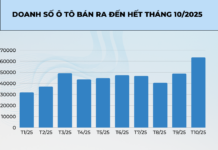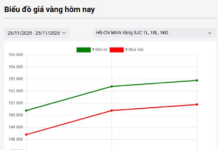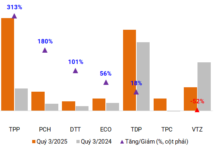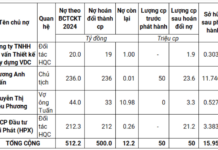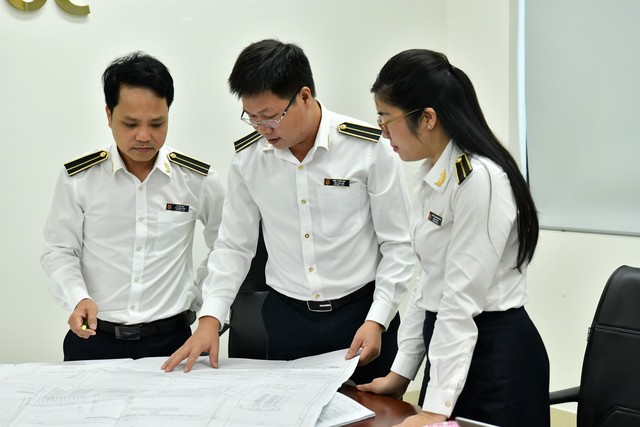Providing Reliable Data for the National Budget Decision-Making
As a state financial audit agency operating independently according to the law, the State Audit Office of Vietnam (SAV)’s audits have actively served the inspection and supervision of the National Assembly, the National Assembly Standing Committee, and state agencies in managing and utilizing the state budget, state funds, and assets; promoting thriftiness, combating corruption, waste, and loss; detecting and preventing legal violations; and improving the efficiency of state budget, funds, and asset usage.
For many years, the SAV has proactively conducted audits of state budget final accounts reports, focusing on financial audit reports to assist the National Assembly in approving the state budget final accounts and People’s Councils at all levels in approving local budget final accounts (LBFA). Through its audit activities, the SAV has provided information for the Finance and Budget Committee (FBC) and other National Assembly Committees to use in their review and oversight of the state budget final accounts.
Accordingly, the annual state budget final accounts audit report has highlighted shortcomings, discrepancies, and financial treatment recommendations for numerous violations in the areas of finance and budget, including limitations in the preparation, allocation, and assignment of the state budget, which serve as a basis for discussion and decision-making by the National Assembly and People’s Councils at all levels on the following year’s state budget, providing information to support the National Assembly and People’s Councils at all levels in making decisions on the state budget and LBFA.
It must be mentioned that the SAV’s positive contributions have been invaluable in providing highly reliable information, data, and documents to assist the National Assembly in deciding the state budget, allocating the central budget (CB), and approving the state budget final accounts; People’s Councils at all levels decide the budget, allocate funds, and approve LBFA final accounts.
In particular, with the constantly improving legal framework for the SAV, its role has become increasingly important through “legalization” to a greater extent in the provisions of the Constitution and the Law on the SAV. Since the promulgation of the Law on the SAV and the Law on the State Budget, the State Auditor General has provided opinions to the National Assembly Standing Committee on the state budget and the annual CB allocation plan. Simultaneously, the SAV has also provided official written opinions on the state budget and the annual CB allocation plan, reporting to the National Assembly Standing Committee and sending them to the Finance and Budget Committee for use in the review process.
The SAV’s participation has provided critical information for reviewing the state budget at National Assembly Committees and for the oversight activities of the National Assembly and People’s Councils. The SAV’s comments, assessments, and confirmations on discrepancies in the budget preparation, budget execution, and state budget final accounts are essential documents provided to the elected bodies for discussion, review, and consideration of budget decisions and approval of state budget final accounts.
National Assembly Needs to Emphasize the SAV’s Role in Coordinating State Budget Review
Despite the positive results, practical experience shows that the SAV’s contributions to the annual state budget have been limited, especially regarding the reasonableness of each revenue and expenditure indicator, the accuracy of data, and the inappropriate allocation of state budget revenue and expenditure items for the current and planned years.
This stems from several factors, including: Limitations in local budget preparation. Most provinces and cities underestimate revenue and overestimate expenditure, leading to significant revenue overruns, while numerous expenditure items exceed the budget (in some cases, local expenditures exceed the budget by up to 200%). This demonstrates the poor quality of state budget preparation and assessment, resulting in numerous revenue and expenditure items not being managed strictly or included in the state budget for consideration and decision by the National Assembly and People’s Councils at all levels…
On the other hand, the time for reviewing the state budget and final accounts is too short due to delays in receiving documents from the Government by the SAV and the reviewing agencies. In reality, after receiving the Government’s documents, the FBC, together with the Ethnic Council and other National Assembly Committees, have only a few days (sometimes 3-5 days) to review them. This has hindered the review, assessment, and provision of opinions by National Assembly agencies, particularly on complex issues related to various socio-economic sectors.
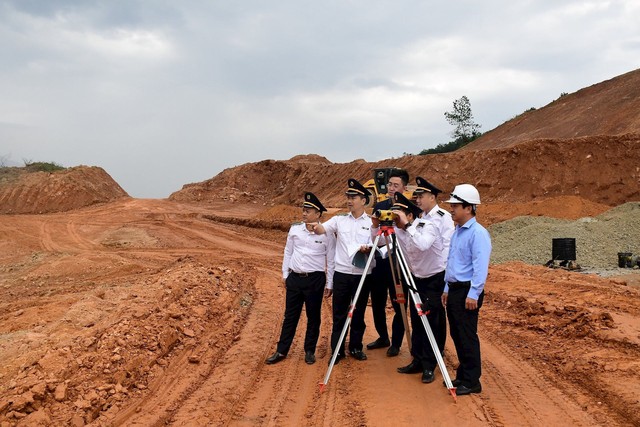
Local budget preparation still has many limitations. Most provinces and cities underestimate revenue and overestimate expenditure, leading to significant revenue overruns while numerous expenditure items exceed the budget, with some local budgets exceeding the budget by 200% (illustrative image)
Given the current situation, to further improve the quality and role of the SAV in developing the state budget and final accounts, several solutions need to be implemented:
Firstly: The coordination mechanism, responsibilities, and authorities of the SAV in participating in the review of the annual state budget, CB allocation, and approval of state budget final accounts should be clearly defined. Simultaneously, the coordination mechanism between the FBC and the SAV must be specified along these lines: the FBC raises issues of concern to the National Assembly and the National Assembly Standing Committee and organizes the supervision of implementation. For example, in overseeing public investment, the SAV should provide information on the extent of losses, at what stage, the percentage of lost funds compared to the total investment capital, and the number of ineffective projects out of the total number of public investment projects, etc. Based on the issues raised by the National Assembly’s FBC, the SAV should focus on clarifying them to address the National Assembly’s and the National Assembly Standing Committee’s requirements.
Secondly: Through audit results over several consecutive years, the SAV should provide information and assess the implementation status of the current year’s state budget based on several factors, such as: revenue and expenditure achievements; management and administration of the state budget by ministries, sectors, and localities; whether the estimated revenue and expenditure targets of the state budget are realistic and reasonable; existing problems, difficulties, causes, and the possibility of completing the state budget (including in-depth analysis of existing issues and the potential for increasing state budget revenue in various economic sectors and regions: state-owned enterprises, non-state-owned enterprises, foreign investments, crude oil revenue, import-export revenue, etc.); areas with expenditure overruns or under-expenditures, and the level of administrative management expenditure increases… Also, recommend solutions for managing the state budget in the current and planned years.
Thirdly: Through audit results, it is necessary to assess favorable and unfavorable factors affecting the following year’s state budget. In particular, it is necessary to evaluate whether the state budget revenue and expenditure projections in the Government’s report are reasonable. If not, which revenue and expenditure items should be increased or decreased? Why? The status of tax arrears, tax evasion, and the potential for recovering these arrears. The basis, foundation, and rationale for the CB allocation plan and the determination of the annual target allocation from the CB to the LBFA? Propose solutions for managing and administering the state budget annually.
Fourthly: The SAV should enhance its independence, objectivity, and have sufficient time to review and comment on the state budget, and perform annual state budget final account audits before submitting them to the National Assembly and the National Assembly Standing Committee for consideration and decision. The National Assembly should emphasize the SAV’s role in participating in the review of the state budget and the CB allocation plan; provide information on the audit of the annual state budget final accounts report to the National Assembly for approval of the state budget final accounts and the People’s Councils for approval of the LBFA final accounts.
Fifthly: Government agencies need to promptly report and provide information on the state budget and approval of the state budget final accounts to the agencies responsible for review, ensuring completeness, timeliness, and compliance with legal regulations. This process requires extensive information on various issues and sectors, such as: the socio-economic situation of specific localities, economic units, industries, regions, and sectors of the economy; budget implementation status of each Ministry, central agency, and each locality; data on economic growth, related indicators, legal provisions on policies, regimes, standards, norms, budget revenue capacity; capital investment needs for development and fulfillment of financial obligations to the State. For development investment expenditure, it is necessary to base it on plans, projects, lists of works, and investment projects approved by competent authorities; specific tasks of ministries, ministerial-level agencies, government agencies, other central agencies, and provinces and centrally-run cities; The status of public debt, government debt, and foreign debt of the nation, debt repayment obligations for each year, etc.
This information is critical for the SAV to assess and comment on the state budget and final accounts and for the FBC to review the state budget and final accounts annually.


